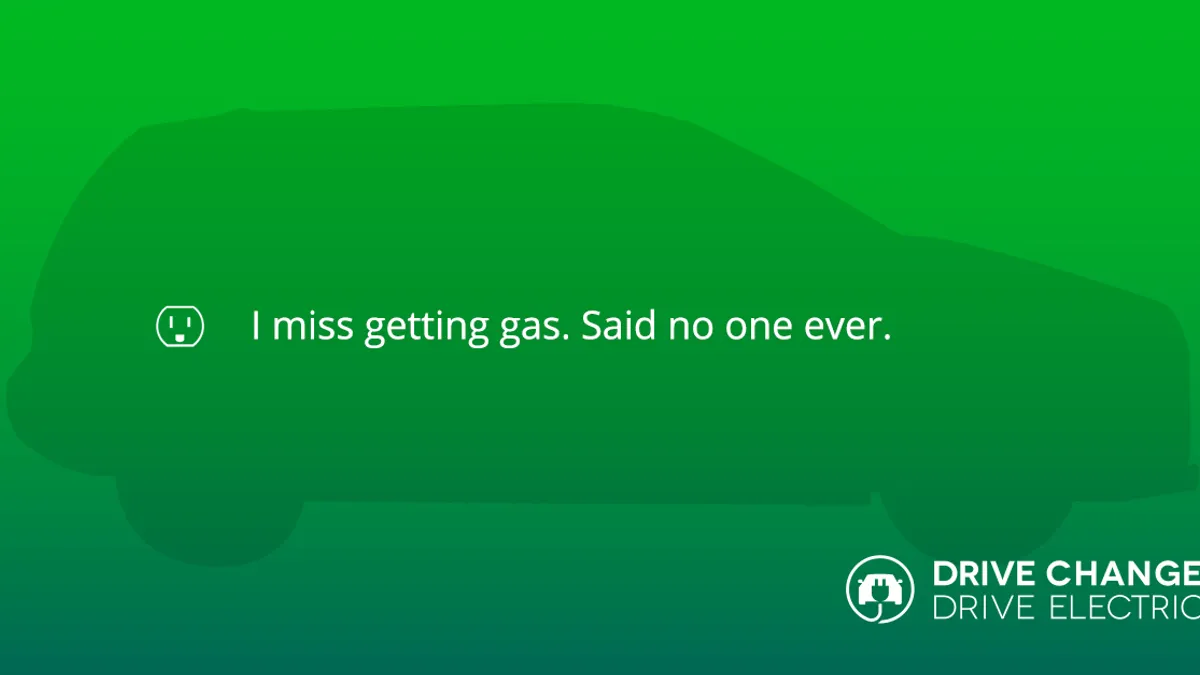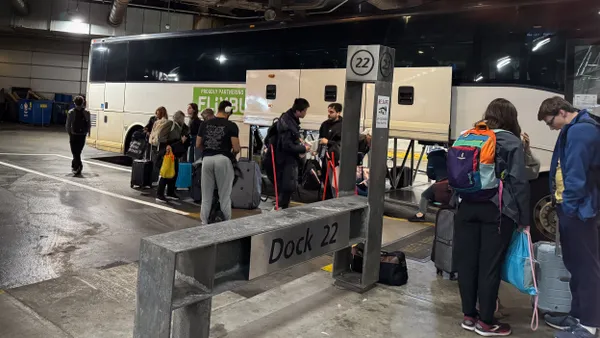Dive Brief:
- A new collaborative campaign dubbed "Drive Change. Drive Electric." was announced at the New York International Auto Show today to advance consumer awareness and understanding around electric vehicle (EV) adoption in the Northeast.
- Elaine Grady, senior policy advisor for the Northeast States for Coordinated Air Use Management (NESCAUM), told Smart Cities Dive this is a "completely integrated" campaign. "We're going to have a new website, advertising, social media ... We're building strategic partnerships and looking at the possibility of events and other efforts that are really all about connecting the public with information that will help consider EVs [as] their next vehicle."
- The campaign, facilitated by NESCAUM, the Association of Global Automakers and the Alliance of Automobile Manufacturers, includes state partners from New York, Connecticut, Massachusets, New Hampshire, Rhode Island, Vermont and New Jersey, as well as 16 automaker partners — including General Motors, BMW Group and Mazda.
Dive Insight:
Promoting EV adoption and infrastructure has become a staple of development as cities work toward ambitious climate goals and plans to enhance resiliency and mobility. And while a number of cities across the U.S. — including Chicago and Columbus — have highlighted an "electric" future, many Northeast states are leading the way in EV action through purchasing incentives and charging station buildout.
"This is a historic partnership. It's not often that you see a bunch of states and major automakers join together in a partnership to educate consumers about technology that they both believe in," Grady said.
Grady notes this campaign has been in the making for some time, following an informal partnership that was developed "a few years back." The partners realized the automotive industry was making progress in electrification, however consumer awareness was lacking. "Consumers really don't have a great understanding of EVs, or maybe their information is out of date, or they don't have enough information to be comfortable enough to really consider them," she explained. Therefore the partners presented a campaign strategy at last year's New York International Auto Show, and worked diligently to formalize the campaign.
While some consumers may feel eager to purchase an EV, concerns around sufficient charging infrastructure are still widely felt across many parts of the U.S. When asked how the campaign would address these concerns, Grady explained that highlighting different kinds of EVs — such as of battery EVs, plug-in hybrid EVs and fuel cell EVs — will be a key part of the effort.
"The first thing that people need to understand is that most charging is done at home ... At the same time, there are a lot of investments that have been made in terms of public infrastructure, in terms of thousands of sites that have gone up in the past few years, thousands more that are being planned right now and major investments that will further build out the infrastructure network," Grady said. She explained that, if the campaign is successful in encouraging EV purchases, it will likely push the entire market forward.












